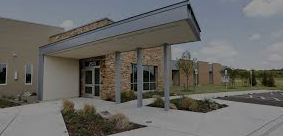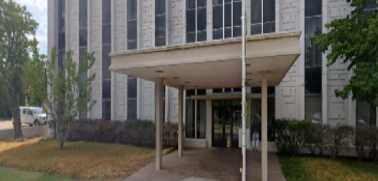Oklahoma Cnty Crisis Intervention Ctr

Contact Details
-
Name:Oklahoma Cnty Crisis Intervention Ctr
-
Address:2625 General Pershing Boulevard
Oklahoma City, OK - 73107 -
Phone:405-942-2300
-
Email:
-
Instagram:
-
Website:
Description
There are currently state and federally funded or sponsored drug and alcohol treatment centers in the state of Oklahoma
Questions & Answers
Help others like you find out more about Oklahoma Cnty Crisis Intervention Ctr. Do you know the answers to any of these questions? Contribute now and help others like you.
What kinds of care do they offer?
-
Mental health treatment
Includes interventions such as therapy or psychotropic medication that treat a person's mental health problem or condition, reduce symptoms, and improve behavioral functioning and outcomes.
-
Substance use treatment
Refers to a broad range of activities or services, including identification of the problem (and engaging the individual in treatment); brief interventions; assessment of substance abuse and related problems including histories of various types of abuse; diagnosis of the problem(s); and treatment planning, including counseling, medical services, psychiatric services, psychological services, social services and follow-up for persons with alcohol or other drug problems (Institute of Medicine, 1990).
-
Treatment for co-occurring substance use plus either serious mental health illness in adults/serious emotional disturbance in children
Housing for individuals recovering from substance abuse that is designed to provide a drug and alcohol-free living environment and appropriate support services to facilitate movement to independent living. Such housing includes transitional living, sober houses, sober living, recovery houses, and 3/4 houses.
What types of treatment approaches do they offer?
-
Group therapy
Involves groups of usually 4 to 12 people who have similar problems and who meet regularly with a therapist. The therapist uses the emotional interactions of the group's members to (1) help them get relief from distress and (2) possibly modify their behavior.
-
Smoking not permitted
Smoking is not allowed.
What type of setting is this location?
-
Hospital inpatient/24-hour hospital inpatient
Medical treatment that is provided in a hospital or other facility and requires at least one overnight stay.
Who is responsible for the operation of this facility?
-
State government
Government of a country subdivision in a federal form of government, which shares political power with the federal or national government and must meet certain standards set by the federal government, but are free to expand beyond what exists at the federal level and improve services, access, and protections for consumers, such as mental health and substance abuse services, in that state.
What types of payment or funding do they accept?
-
Cash or self-payment
Payment for treatment is made by the person directly, through cash or other means, rather than using health insurance.
-
Medicaid
A joint federal and state program that helps with medical costs for some people with low incomes and limited resources. Medicaid programs vary from state to state.
-
Medicare
The federal health insurance program for people age 65 and older and people with disabilities.
-
Private health insurance
-
Federal military insurance (e.g., TRICARE)
-
State mental health agency (or equivalent) funds
Funds designed to finance the cost of treatment for mental health conditions.
-
Community Mental Health Block Grants
Through individual block grant contracts with community mental health services programs, these resources are focused on development and maintenance of community based services.
Do they offer any emergency mental health services?
-
Crisis intervention team
A self-initiated community partnership between local law enforcement, county health services, mental health advocates, and mental health consumers. It is designed to address the needs of mental health consumers who enter the judicial system during a crisis state.
-
Psychiatric emergency walk-in services
Designed to provide accessible, professional, cost-effective services to individuals in psychiatric crisis, and strive to stabilize consumers on site and avoid psychiatric hospitalization whenever possible.
-
Psychiatric emergency onsite services
A self-initiated community partnership between local law enforcement, county health services, mental health advocates, and mental health consumers. It is designed to address the needs of mental health consumers who enter the judicial system during a crisis state.
Is any payment assistance available?
-
Payment assistance (check with facility for details)
A program which helps low-income, uninsured, or underinsured patients who need help paying for all or part of their medical bills.
What language services are offered?
-
Sign language services for the deaf and hard of hearing
Service provided for persons who are deaf and hard of hearing.
What specific groups are treated here?
-
Clients with co-occurring mental and substance use disorders
Facility has a program or group specifically tailored for persons with co-occurring mental and substance abuse disorders.
-
Lesbian, gay, bisexual, transgender, or queer/questioning (LGBTQ)
Facility has a program or group specifically tailored for LGBT clients.
-
Veterans
Facility has a program or group specifically tailored for Veterans.
-
Active duty military
Facility has a program or group specifically tailored for active duty military persons.
-
Members of military families
Facility has a program or group specifically tailored for Military families.
-
Seniors or older adults
Facility has a program or group specifically tailored for Seniors or older adults.
-
Clients who have experienced trauma
Facility has a program or group specifically tailored for persons who have experienced trauma.
-
Persons 18 and older with serious mental illness (SMI)
Facility has a program or group specifically tailored for persons with serious mental illness.
-
Young adults
Facility has a program or group specifically tailored for Transitional age young adults.
-
Persons experiencing first-episode psychosis
Facility has a program or group specifically tailored for persons with eating disorders.
What ancillary services are offered at this facility?
-
Case management service
Helps people arrange for appropriate services and supports through a case manager who monitors the needs of clients/patients and their families and coordinates services, such as mental health, social work, health, educational, vocational, recreational, transportation, advocacy, and respite care, as needed.
-
Psychosocial rehabilitation services
Offered individually or in groups, provide therapeutic or intervention services such as daily and community-living skills, self-care and skills training (grooming, bodily care, feeding, social skills training, and basic language skills).
-
Suicide prevention services
Include identifying risk factors; educating staff on identifying the signs of suicidal behavior and using methods to detect risk; and the assessment, intervention, and management of suicidal patients including treatment of an underlying mental or substance use disorder, and use of psychotropic medication, supportive services, and education. Hotlines help individuals to contact the nearest suicide prevention mental health provider.
What types of recovery support services are offered here?
-
Mentoring/peer support
What specific pharmacotherapy treatments do they provide?
-
Nicotine replacement
Administers nicotine to the body by means other than tobacco, without other harmful chemicals found in tobacco. Common forms of nicotine replacement therapy are nicotine patches, nicotine gum or lozenges, nasal spray and inhaler. The goal of nicotine replacement is to prevent cravings in a tobacco user, allowing the person to abstain from tobacco.
-
Chlorpromazine
Chlorpromazine is used to treat the symptoms of schizophrenia and to treat the symptoms of mania in people who have bipolar disorder. It helps you to think more clearly, feel less nervous, and take part in everyday life. It can reduce aggressive behavior and the desire to hurt yourself/others. It works by helping to restore the balance of certain natural substances in the brain.
-
Fluphenazine
Fluphenazine is a decades-old antipsychotic medication used to treat schizophrenia and psychotic symptoms such as hallucinations, delusions, and hostility.
-
Haloperidol
Haloperidol is used to treat psychotic disorders and is also used to control motor tics and verbal tics in adults and children who have Tourette's disorder. Haloperidol is also used to treat severe behavioral problems such as explosive, aggressive behavior or hyperactivity in children who cannot be treated with psychotherapy or with other medications. Haloperidol is in a group of medications called conventional antipsychotics. It works by decreasing abnormal excitement in the brain.
-
Prochlorperazine
-
Aripiprazole
-
Clozapine
-
Olanzapine
-
Paliperidone
-
Quetiapine
-
Risperidone
-
Ziprasidone
-
Antipsychotics used in treatment of SMI
A multi-disciplinary clinical team approach, helps those with serious mental illness live in the community by providing 24-hour intensive community services in the individual's natural setting.
What types of screening and assessment methods are used here?
-
Screening for tobacco use
Determines a client's use of tobacco products, such as cigarettes, cigars, pipe tobacco, or smokeless tobacco. It is generally recommended that providers screen for tobacco use on a regular basis by asking clients, as they are seen, about their current and past use of tobacco products and their exposure to secondhand smoke or tobacco.
What kinds of education and counseling services are offered here?
-
Smoking/vaping/tobacco cessation counseling
Includes interventions for persons who use tobacco and want help with stopping, including behavioral support or counseling in groups or individually.
What age groups are accepted here?
-
Young Adults
Facility accepts young adults (13-25) for treatment.
-
Adults
Facility accepts adults (26-64) for treatment.
-
Seniors
Facility accepts seniors (65 or older) for treatment.
What types of testing do they offer?
-
TB screening
Skin tests that are used to screen people who are at high risk for TB exposure such as people with diseases or conditions that weaken their immune system.
What type of facility is this?
-
State hospital
Is vaping allowed at this facility?
-
Vaping not permitted
How do I apply for admission at this location?
Have you been to this facility? What was your experience?
Is there a wait-list for treatment center?
Is any payment required?
Related Posts
OU Medical Center
- Oklahoma City, OK
- 3.58 miles away


